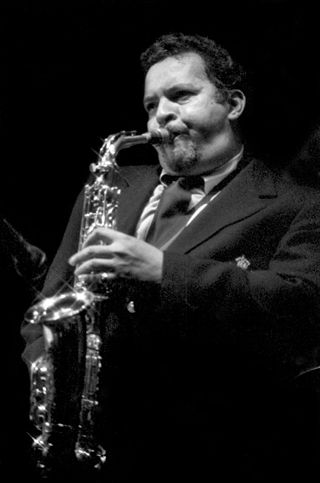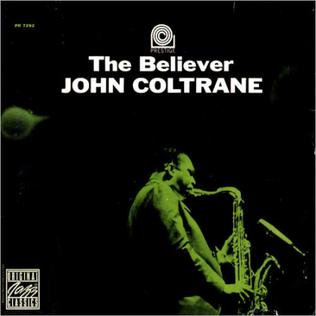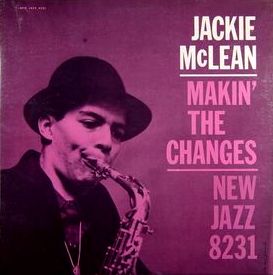
John Lenwood McLean was an American jazz alto saxophonist, composer, bandleader, and educator, and is one of the few musicians to be elected to the DownBeat Hall of Fame in the year of their death.

Roy Owen Haynes is an American jazz drummer. He is among the most recorded drummers in jazz. In a career lasting over 80 years, he has played swing, bebop, jazz fusion, avant-garde jazz and is considered a pioneer of jazz drumming. "Snap Crackle" was a nickname given to him in the 1950s.
Raymond Allen Draper was an American jazz tuba player.

William McKinley "Red" Garland Jr. was an American modern jazz pianist. Known for his work as a bandleader and during the 1950s with Miles Davis, Garland helped popularize the block chord style of playing in jazz piano.
Larry Ritchie was an American jazz drummer and record/CD producer. He was born in Brooklyn, New York as Lawrence Ritchie to Walter Ritchie, an electrician, and Pearl Ritchie, a domestic worker, both of whom were migrants from rural Virginia.

Arthur S. Taylor Jr. was an American jazz drummer, who "helped define the sound of modern jazz drumming".
Webster English Young was an American jazz trumpeter and cornetist.

Milestones is a studio album by Miles Davis. It was recorded with his "first great quintet" augmented as a sextet and released in 1958 by Columbia Records.

Idrees Sulieman was an American bop and hard bop trumpeter.

Miles Davis and Milt Jackson Quintet/Sextet, also known as Quintet/Sextet is a studio album by the trumpeter Miles Davis and vibraphonist Milt Jackson released by Prestige Records in August 1956. It was recorded on August 5, 1955. Credited to "Miles Davis and Milt Jackson", this was an "all-star" session, and did not feature any of the members of Davis's working group of that time. Alto saxophonist Jackie McLean appears on his own compositions “Dr. Jackle” and “Minor Apprehension”.
Ahmed Abdul-Malik was an American jazz double bassist and oud player.

The Believer is a jazz album by John Coltrane released in 1964 on Prestige Records, catalogue 7292. It was recorded by Rudy Van Gelder in Hackensack, New Jersey in 1957 and 1958.
James Lawrence Buffington was an American jazz, studio, and classical hornist.
Jimmy "Spanky" DeBrest was an American jazz bassist.
Billy Harper is an American jazz saxophonist, "one of a generation of Coltrane-influenced tenor saxophonists" with a distinctively stern, hard-as-nails sound on his instrument.
In the late 1960s, Latin jazz, combining rhythms from African and Latin American countries, often played on instruments such as conga, timbale, güiro, and claves, with jazz and classical harmonies played on typical jazz instruments broke through. There are two main varieties: Afro-Cuban jazz was played in the US right after the bebop period, while Brazilian jazz became more popular in the 1960s. Afro-Cuban jazz began as a movement in the mid-1950s as bebop musicians such as Dizzy Gillespie and Billy Taylor started Afro-Cuban bands influenced by such Cuban and Puerto Rican musicians as Xavier Cugat, Tito Puente, and Arturo Sandoval. Brazilian jazz such as bossa nova is derived from samba, with influences from jazz and other 20th-century classical and popular music styles. Bossa is generally moderately paced, with melodies sung in Portuguese or English. The style was pioneered by Brazilians João Gilberto and Antônio Carlos Jobim. The related term jazz-samba describes an adaptation of bossa nova compositions to the jazz idiom by American performers such as Stan Getz and Charlie Byrd.

Young Man with a Horn, also known as Miles Davis, Vol. 1, is the second 10-inch LP by American jazz trumpeter Miles Davis, recorded at WOR studios on May 9, 1952 and released on Blue Note the following year.

Makin' the Changes is a studio album by saxophonist Jackie McLean. It was recorded in 1957 for Prestige, but not released until 1960 by the subsidiary label New Jazz as NJ 8231. It features three tracks with McLean in a quartet with pianist Mal Waldron, bassist Arthur Phipps and drummer Art Taylor, and three with a sextet featuring trumpeter Webster Young, trombonist Curtis Fuller, pianist Gil Coggins, bassist Paul Chambers and drummer Louis Hayes.

Strange Blues is an album by American saxophonist Jackie McLean, recorded in 1957 and released on the Prestige label. It features three tracks with McLean in a quartet featuring pianist Jon Mayer, bassist Bill Salter and drummer Larry Ritchie, one with a quartet featuring pianist Mal Waldron, bassist Art Phipps and drummer Art Taylor and one with a quartet featuring pianist Gil Coggins, bassist Paul Chambers and drummer Louis Hayes. Trumpeter Webster Young and tuba player Ray Draper appear together on two tracks.

Fat Jazz, also referred to as Jackie McLean Plays Fat Jazz, is an album by American saxophonist Jackie McLean, which was recorded in late 1957 and released by the Jubilee label in 1959. It features McLean in a sextet with trumpeter Webster Young, tuba player Ray Draper, pianist Gil Coggins, bassist George Tucker and drummer Larry Ritchie.











